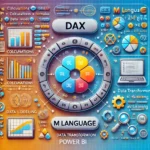When it comes to test automation, selecting the right tools and environments is crucial to the success of your testing efforts. Selenium, a popular choice for web application testing, supports multiple programming languages. Among them, Python has gained immense popularity due to its simplicity and readability. Additionally, Visual Studio Code (VS Code) has emerged as a powerful code editor with a range of features. In this blog post, we will compare Selenium Python vs. Visual Studio Code to help you make an informed decision for your test automation projects.
Selenium with Python
Python is known for its clear and concise syntax, making it a preferred choice for many testers. Selenium with Python offers an elegant and straightforward way to create test scripts for web applications. The simplicity of Python allows testers to write less code while achieving the same functionality, leading to faster script development and easy maintenance. The extensive Python community and libraries, such as PyTest and Robot Framework, further enhance its appeal for test automation projects.
Pros of Selenium with Python
- Simplicity and readability
- Faster test script development
- Extensive libraries and community support
- Ideal for beginners and experienced testers.
Visual Studio Code
Visual Studio Code is a lightweight, open-source code editor developed by Microsoft. It has quickly become one of the most popular choices for developers and testers alike due to its rich set of features. VS Code supports various programming languages, including Python, and provides excellent syntax highlighting, code completion, and debugging capabilities. The built-in Git integration and a wide range of extensions further enhance its versatility.
Pros of Visual Studio Code
- Lightweight and fast performance
- Excellent code editing features
- Versatile language support
- Integrated Git functionality.
https://synapsefabric.com/2023/07/27/selenium-python-vs-selenium-java-a-comprehensive-comparison-for-test/
Integration of Selenium with Visual Studio Code
Visual Studio Code provides seamless integration with Selenium for Python development. Testers can install the necessary Python extensions, including IntelliSense and auto-completion, which significantly streamline test script development. Additionally, VS Code’s debugging capabilities allow testers to troubleshoot and identify issues in their Selenium test scripts effectively.
Ease of Use and Learning Curve
Both Selenium with Python and Visual Studio Code are renowned for their ease of use. Python’s simple and readable syntax makes it accessible to beginners in programming and test automation. Visual Studio Code’s intuitive user interface and comprehensive documentation contribute to a smooth learning curve for both novice and experienced testers.
In conclusion, Selenium with Python and Visual Studio Code form a powerful combination for test automation. Python’s simplicity and the extensive libraries for Selenium make it an attractive choice for creating efficient test scripts. On the other hand, Visual Studio Code’s rich code editing features and seamless integration with Selenium Python accelerate script development and debugging.
https://synapsefabric.com/2023/07/28/selenium-python-vs-playwright-a-battle-of-modern-web-automation-tools/
When considering Selenium Python vs. Visual Studio Code, evaluate your team’s expertise and project requirements. If you prioritize simplicity and readability, Selenium with Python is an excellent option. If you seek a feature-rich code editor with versatile language support, Visual Studio Code is the ideal choice.
Ultimately, the right combination of Selenium with Python and Visual Studio Code empowers testers to drive effective and robust test automation, ensuring the quality of web applications and contributing to successful software development.






